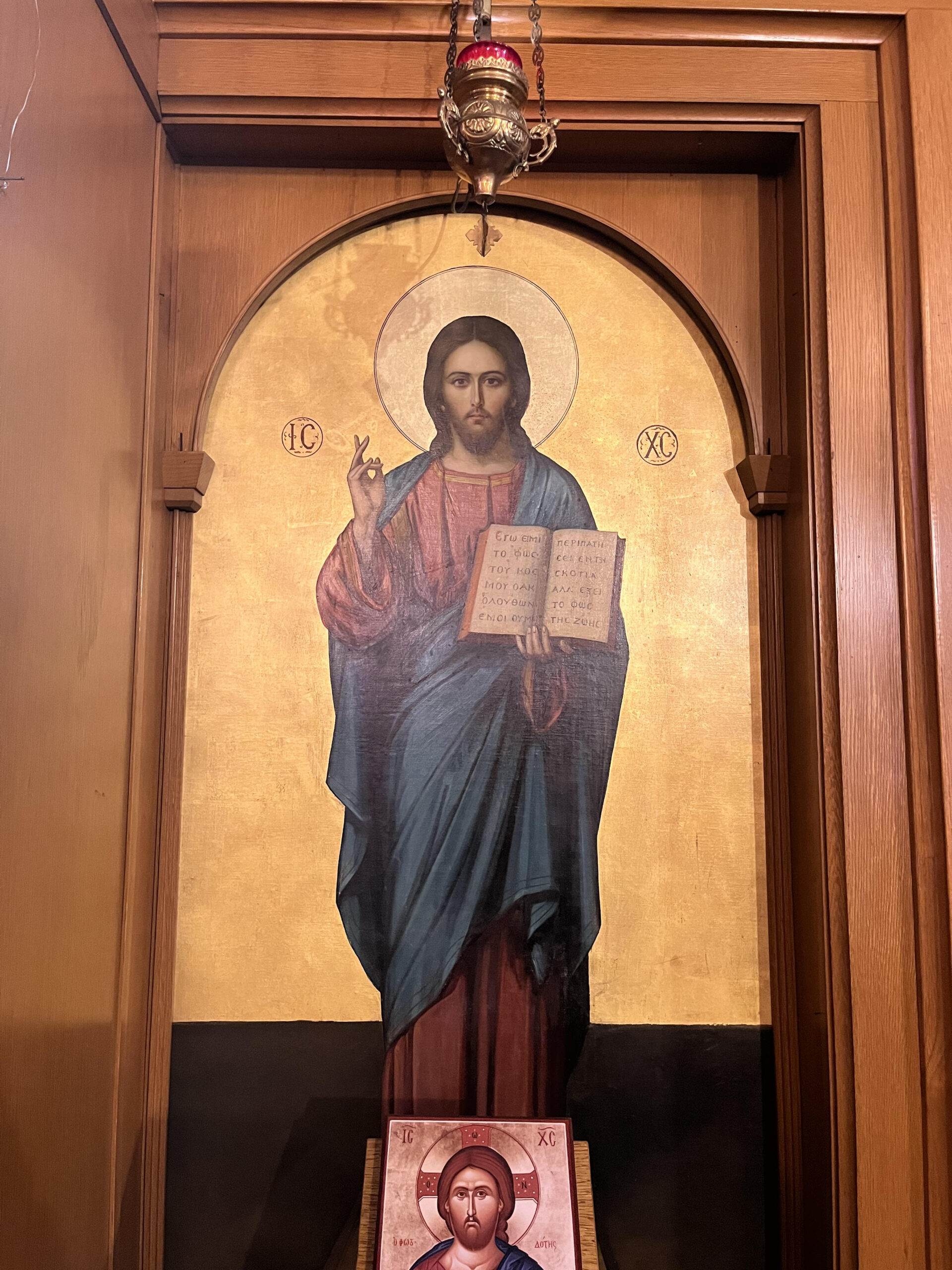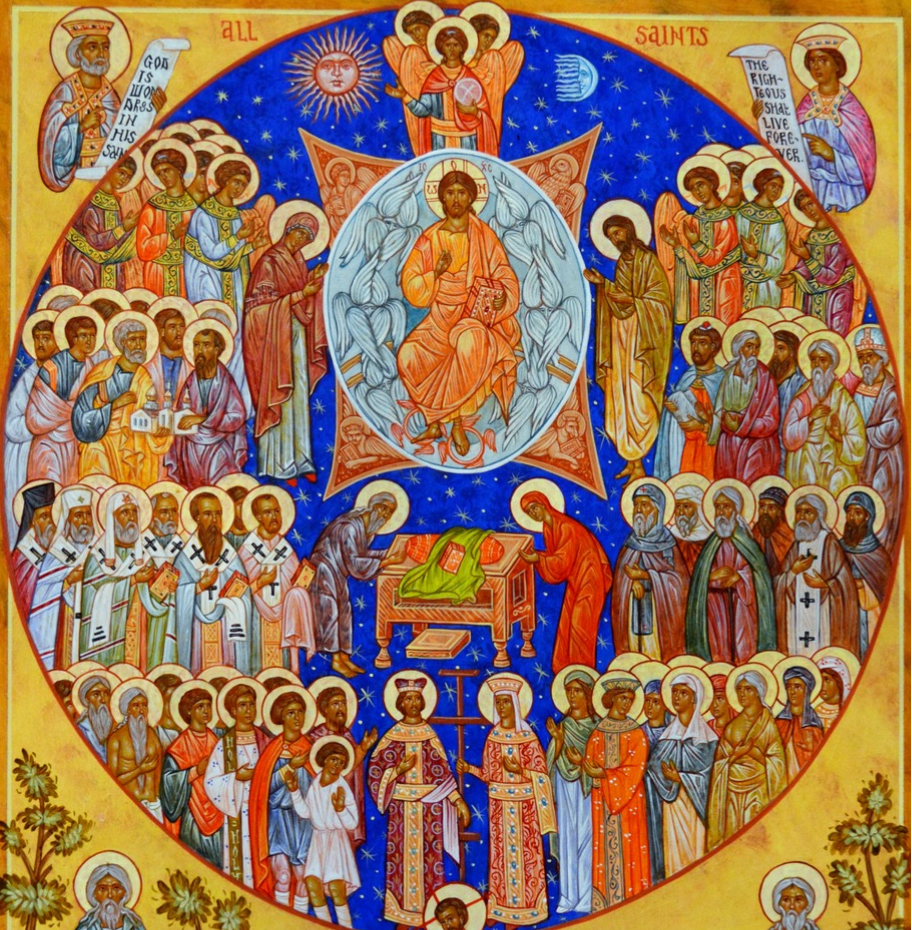All the saints who through faith conquered kingdoms, enforced justice, received promises, stopped the mouths of lions, quenched raging fire, escaped the edge of the sword, won strength out of weakness, became mighty in war, put foreign armies to flight. Women received their dead by resurrection. Some were tortured, refusing to accept release, that they might rise again to a better life. Others suffered mocking and scourging, and even chains and imprisonment. They were stoned, they were sawn in two, they were killed with the sword; they went about in skins of sheep and goats, destitute, afflicted, ill-treated— of whom the world was not worthy—wandering over deserts and mountains, and in dens and caves of the earth. And all these, though well attested by their faith, did not receive what was promised, since God had foreseen something better for us, that apart from us they should not be made perfect. Therefore, since we are surrounded by so great a cloud of witnesses, let us also lay aside every weight, and sin which clings so closely, and let us run with perseverance the race that is set before us, looking to Jesus the pioneer and perfecter of our faith.
Hebrews 11:33-40; 12: 1-2 (Epistle for Sunday of All Saints)
The Sunday after Pentecost, in the Orthodox Church, is called the Feast of All Saints. In Greek it is called “Ton Agion Panton.” The word we use in the Greek language for “saint” is “Agios” for male saints and “Agia” for female saints. “Agios” means “holy” and “holy” means “set apart.” The “saints” or the “holy ones” are those who strived in their lives to put God first in all things. They “set apart” the relationship with the Lord and put it ahead of everything else.
The decision to strive for holiness isn’t easy, and it often doesn’t come with a lot of rewards or accolades in this life. The Epistle lesson talks about the many bad things that happened to the holy people who set themselves apart for Christ. Some were tortured, others suffered mocking and scourging, chains, imprisonment, stoning, martyrdom, exile, and poor treatment.
The decision to be “set apart”, however, has done two things for people. It has allowed them to do some pretty incredible things in life, like conquering kingdoms, escaping fire and wild animals, winning on occasions when they were vastly outnumbered, escape the sword, and conquer foreign armies. Yes, the devout faith of Christians has enabled them to accomplish some pretty incredible things. Remember back in Lent, when we celebrated the Salutations to the Virgin Mary. The original “Akathist Hymn” was a prayer prayed all night for a city to be delivered from foreign invasion. The tide of the sea turned against the invaders and spared the city, a miracle of God granted because of faith and prayer. Again, that doesn’t mean that faith and prayer take care of every problem. Look at the saints we are honoring today—certainly they had faith and prayed often, and yet lots of bad things happened to them. But lots of good things happened to them in life as well.
The most important thing that striving to be “set apart” does is that it will enable us to one day enter into the Kingdom of heaven. God foresees something better for us, for each of us, for those who live today and to those who lived a long time ago. The promise of God for us to inherit eternal life is something that those who have strived to be “set apart” will receive, in part at least, as soon as they pass away from this life. However, there is something even greater that all the “holy people” throughout the all the ages will receive together, something even greater than what the saints have already received.
Our journey to holiness starts off with small decisions we will make today—what our eyes will see, what our ears will hear, what our mouths will say and the kinds of things we will do. We have a choice to look at beauty or filth, to hear positive things or negative ones, to speak words of praise and encouragement or words of consternation to others, and to do acts of love or acts of hate. Today we will be confronted with choices to follow after the Lord or after the crowd. Holiness means to seek after the things of God, and it starts with small choices that will set us apart, perhaps earning us criticism from our peers, but earning us praise from the Lord.
Christ the Lord has made wondrous all of His Saints that were on the earth, for as the Apostle declared, they bore His marks and in their flesh shared His sufferings, adorning themselves therewith, and distinguishing themselves in the beauty that is divine. Let us therefore praise and acclaim them as never-fading flowers and as voluntary victims, and as the Church’s unerring stars. (From the Praises of the Matins on Sunday of All Saints, Trans. by Fr. Seraphim Dedes)
Strive for holiness today!

